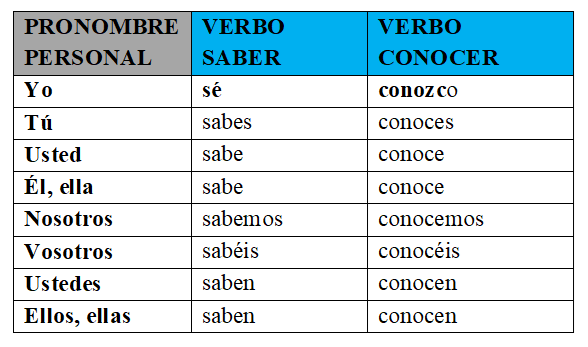Saber and Conocer are one of those verb pairings that can drive students locos, so let’s brush up our Spanish grammar skills with this easy guide!
First, let’s take a look at their conjugations in the present tense. Notice that both verbs are irregular only on the first person singular (yo):
Verbo Saber:
1. We use it to indicate intelectual knowledge and to discuss information. Para saber algo, primero tenemos que aprender, estudiar, leer, escuchar, memorizar:
- Juanita sabe el alfabeto en español.
- Los niños saben los números del 1 al 100.
- Tú sabes mi nombre.
2. We use it to talk about someone’s skills (habilidades) using the structure saber + infinitivo:
- Rubén sabe cocinar muy bien.
- Cecilia sabe tocar la guitarra.
- Ellos saben jugar al baloncesto.
Verbo Conocer:
We use it to express familiarity with a person, object, idea, or place. We use it to express material, first-hand knowledge. Para conocer algo, primero tenemos que ver o mirar, visitar, viajar:
- – ¿Conoces a los padres de Teresa?
– No, yo no conozco a los padres de Teresa. - Ellos no conocen el museo. Lo quieren visitar esta semana.
- – ¿Conoces este libro?
– Sí lo conozco.
Importante:
We can use both saber and conocer in the following context. However, note that the meaning changes:
- Sylvia sabe esta canción. (Meaning, she can sing the whole song.)
- Sylvia conoce esta canción. (Meaning, she’s heard the song before.)




